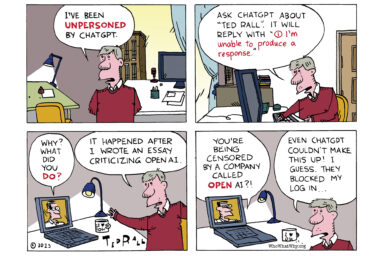US Surgeon General Vivek Murthy on Monday called on Congress to pass legislation that would require social media platforms to come with warning labels.
|
Listen To This Story
|
US Surgeon General Dr. Vivek Murthy on Monday called on Congress to pass legislation that would require social media platforms to come with warning labels. These would be similar to those found on tobacco products and state that the use of these sites has not been proven safe and may be especially harmful to adolescents.
“One of the most important lessons I learned in medical school was that in an emergency, you don’t have the luxury to wait for perfect information,” Murthy wrote in an editorial in The New York Times. “The mental health crisis among young people is an emergency — and social media has emerged as an important contributor.”
He pointed to research that found that adolescents who spend three hours per day using social media sites are much more likely to suffer from anxiety and depression symptoms. And three hours is well below the average of 4.8 hours that members of this age group spend on these sites daily.
Murthy added that such a warning label “would regularly remind parents and adolescents that social media has not been proved safe.”
He also noted that a recent survey has shown that 76 percent of Latino parents said such a label would get them to limit or monitor the social media use of their kids.
However, such a warning by itself won’t be enough to adequately protect America’s youth from the harmful effects of social media sites.
“To be clear, a warning label would not, on its own, make social media safe for young people,” Murthy wrote, adding that Congress must take additional steps.
“Legislation from Congress should shield young people from online harassment, abuse and exploitation and from exposure to extreme violence and sexual content that too often appears in algorithm-driven feeds,” he stated. “The measures should prevent platforms from collecting sensitive data from children and should restrict the use of features like push notifications, autoplay and infinite scroll, which prey on developing brains and contribute to excessive use.”
Furthermore, the surgeon general said, social media platforms must grant independent access for the public to their internal data on the health effects of their products.
“While the platforms claim they are making their products safer, Americans need more than words,” Murthy wrote. “We need proof.”
But protecting American kids is not just up to the social media platforms but also parents and schools, which should curb the amount of time children spend on these sites.
In fact, Murthy says the earliest that they should be given access to social media is after middle school.
Still, none of this will help without social media platforms doing more.
“One of the worst things for a parent is to know your children are in danger yet be unable to do anything about it,” he wrote. “That is how parents tell me they feel when it comes to social media — helpless and alone in the face of toxic content and hidden harms.”
Murthy pointed out that it does not have to be that way because the US has successfully addressed other dangers in the past, such as smoking or driving without a seatbelt.
However, in this case, “there is no seatbelt for parents to click, no helmet to snap in place, no assurance that trusted experts have investigated and ensured that these platforms are safe for our kids,” he added. “There are just parents and their children, trying to figure it out on their own, pitted against some of the best product engineers and most well-resourced companies in the world.”



